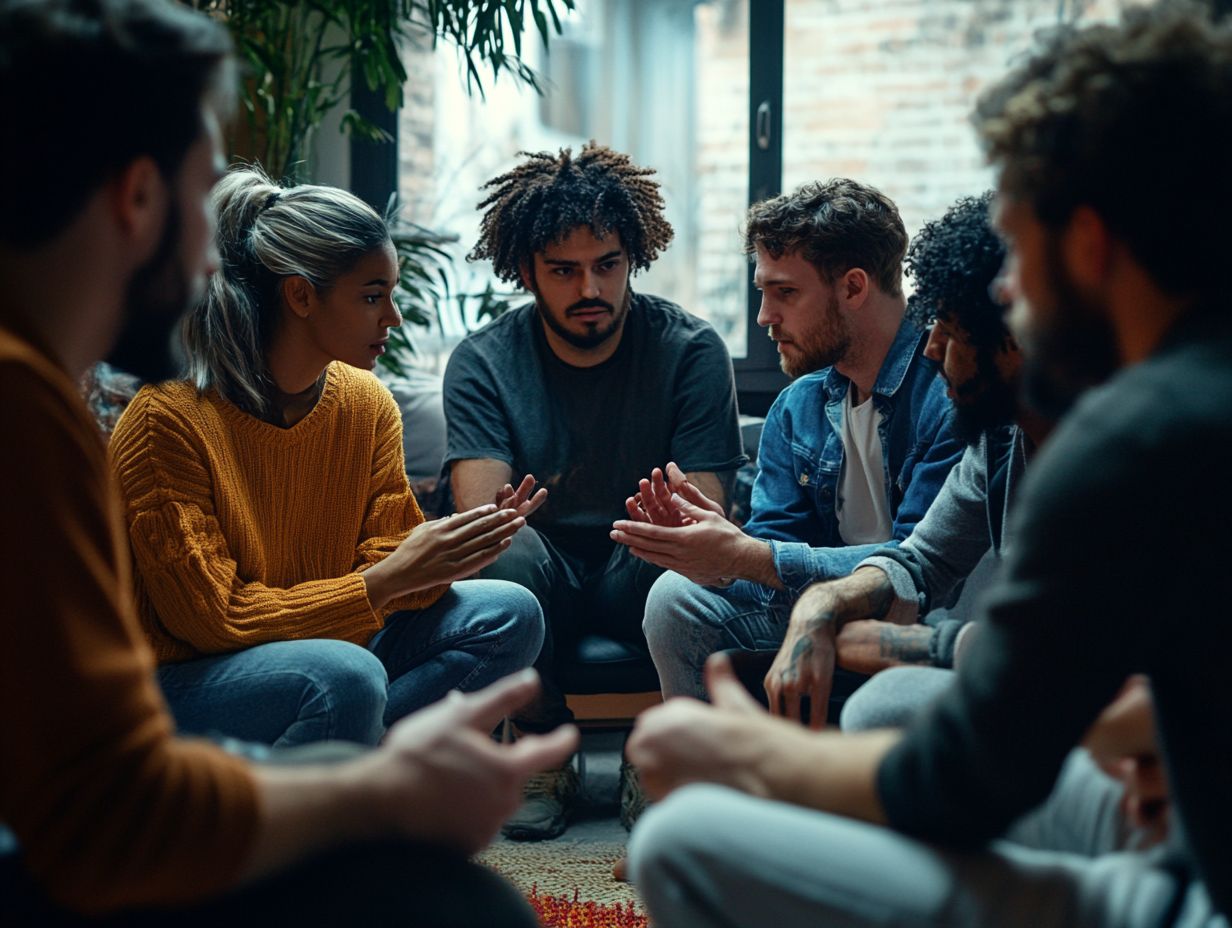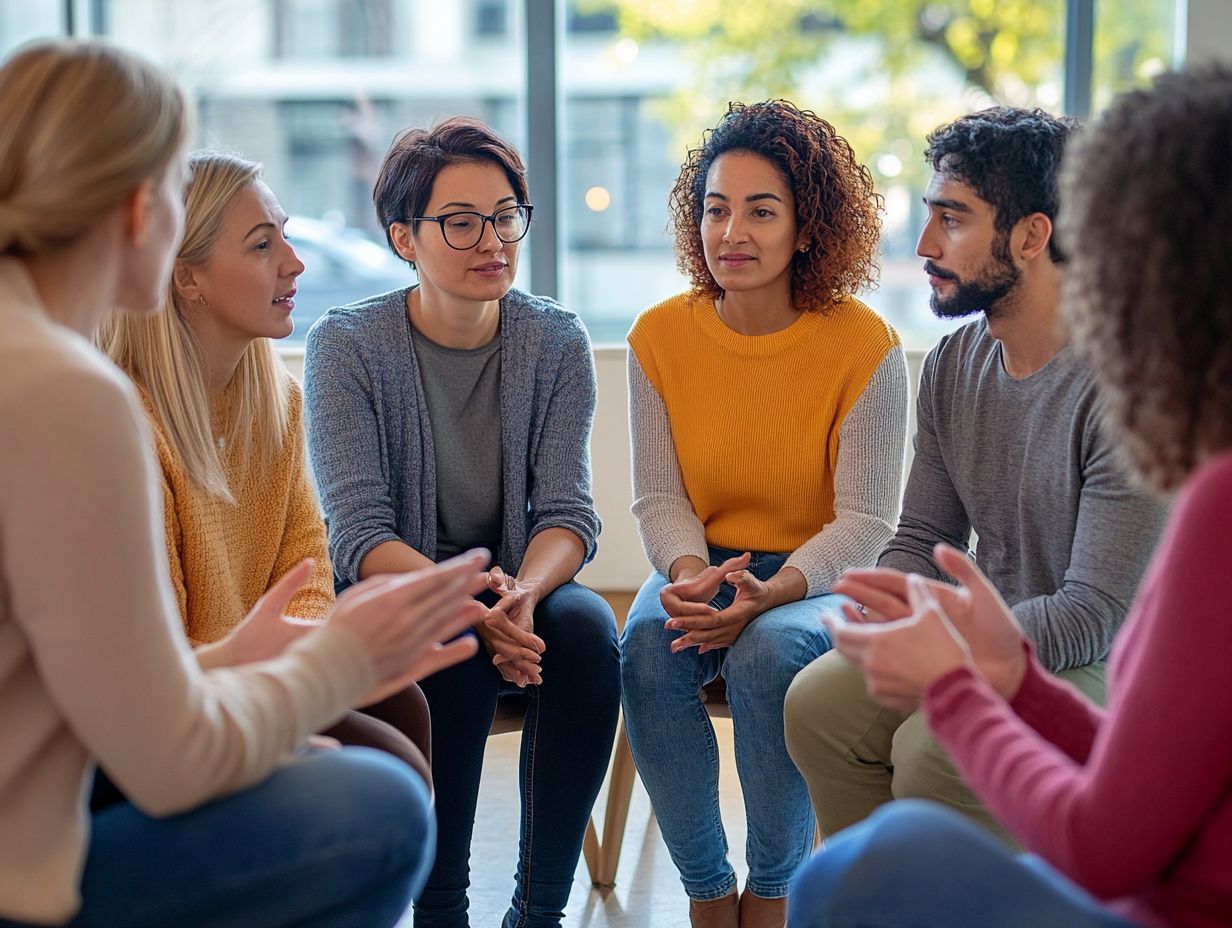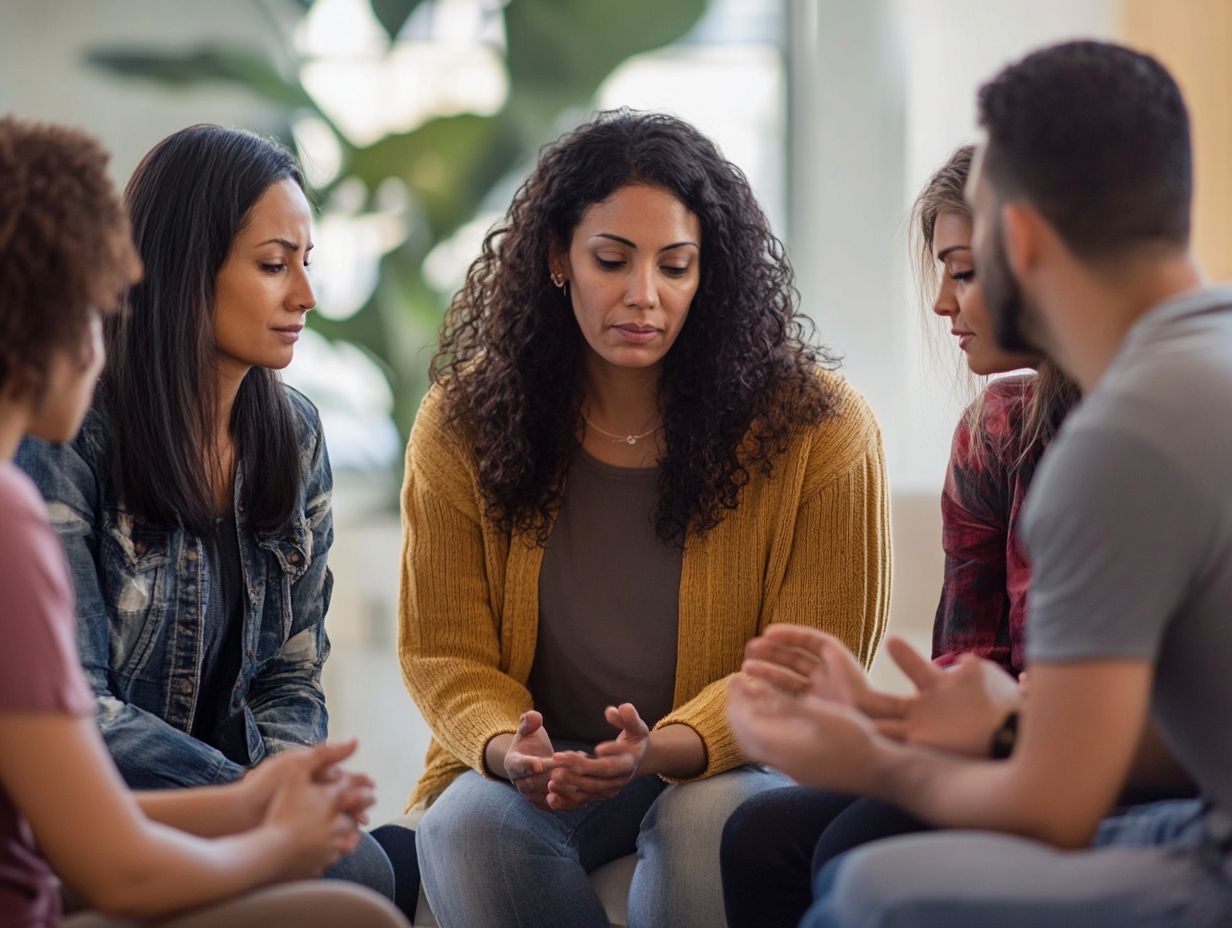Peer support plays a crucial role in the recovery process for survivors of domestic violence by offering a safe and understanding environment where individuals can share their experiences and access essential resources. This system of mutual assistance not only provides emotional healing but also fosters resilience and community building, aiding survivors on their healing journey to recovery.
Understanding Peer Support: It is a form of support where individuals with similar backgrounds come together to share insights and strategies, providing both emotional and practical assistance. This approach helps survivors feel validated and understood, offering a trauma informed, judgment-free safe space to express feelings and experiences.
Benefits of Peer Support: Engaging in peer support groups helps increase survivor empowerment, enhance resilience, and develop effective coping skills. By participating in these groups, survivors can regain control and confidence while learning from shared stories and survivor experiences.
For those seeking to connect with peer support networks, advocacy organizations such as the National Domestic Violence Hotline, SAFE Family Justice Centers, and local shelters provide valuable resources and services. These organizations facilitate access to peer support groups and foster community connections essential for healing and recovery.
Key Takeaways:
Understanding Peer Support

Peer support is a system where individuals with similar experiences, such as survivors of domestic violence, share insights and support each other’s healing process.
Peer support works by providing a safe environment for sharing experiences and accessing coping strategies and resources to aid recovery. It is especially beneficial in trauma informed care settings where mental health is prioritized.
Definition and Importance
Peer support refers to assistance provided by individuals with similar experiences, such as survivors of domestic violence.
Peer support is important because it helps individuals feel understood and validated, creating a judgment-free space for sharing feelings and experiences.
Connecting with others who have faced similar hardships provides solace, encouragement, and essential emotional healing. Survivors benefit from mutual understanding and collective wisdom shared in these settings.
Peer support equips survivors with coping strategies and resources, fostering resilience and building solidarity. Through personal testimonials and success stories, survivors can find hope and motivation.
The Role of Peer Support in Survivors’ Recovery
Peer support in survivors’ recovery provides emotional healing and a sense of community. Survivors share experiences and learn coping strategies from each other.
Engaging in peer support groups develops resilience and belonging, aiding recovery from trauma. These groups also emphasize the importance of self-care and setting personal boundaries.
Emotional and Practical Support
Emotional support in peer support groups for domestic violence survivors provides a safe space for sharing experiences, fostering understanding and validation.
Practical support includes exchanging coping strategies like mindfulness and journaling, aiding in stress management and recovery. These strategies are often shared through community outreach and survivor informed peer support initiatives.
Peer support groups enable survivors and promote healing.
Building a Supportive Community
Building a supportive community for domestic violence survivors involves creating a network of resources and emotional support to aid healing and recovery. This includes leveraging social media to connect survivors and share information.
Community organizations play a crucial role by raising awareness, providing safe spaces, and facilitating connections to essential services.
Support groups and community outreach initiatives enable survivors to share experiences, foster resilience, and rebuild their lives. These initiatives often include peer-led workshops and group therapy sessions.
Types of Peer Support

Types of peer support for survivors of domestic violence include:
- one-on-one support,
- group support,
- online support forums,
- peer-led workshops.
One-on-one support involves direct interaction between a survivor and a trained peer supporter.
Group support provides a space where survivors can share experiences and receive encouragement from others in similar situations.
Online support forums offer anonymous, accessible platforms for survivors to connect and communicate.
Peer-led workshops focus on enableing survivors through education and skill-building activities.
One-on-One Support
One-on-one support provides survivors with personalized attention and a confidential space for emotional healing.
One-on-one support allows survivors to express their thoughts, establish personal boundaries, and explore tailored coping strategies.
One-on-one support fosters trust, encourages self-reflection, and helps build resilience.
Group Support
Group support for survivors of domestic violence provides a safe space for individuals to share experiences and learn from others.
Participants connect in supportive environments, promoting emotional healing and enablement.
The group dynamic encourages confronting trauma collectively and builds a community focused on safety and trust.
Group support highlights that healing involves shared experiences and collective recovery.
Benefits of Peer Support for Survivors
Peer support for survivors of domestic violence offers multiple benefits, including increased enablement, enhanced resilience, and the development of effective coping skills.
-
Increased Empowerment: Peer support groups provide a sense of control and confidence through shared experiences.
-
Enhanced Resilience: Sharing stories with peers helps build emotional strength and adaptability.
-
Development of Coping Skills: Peer support introduces practical strategies and techniques for managing stress and trauma.
Empowerment and Validation
Empowerment and validation in peer support help survivors reclaim confidence and control over their healing journeys.
Empowerment allows individuals to regain strength and self-belief through shared experiences.
Validation acknowledges and understands feelings, fostering a supportive community for healing and resilience.
Increased Resilience and Coping Skills

Peer support increases resilience and coping skills by providing survivors with shared strategies and emotional support.
Resilience and coping are enhanced through practices like mindfulness and storytelling.
In peer support, sharing personal experiences helps participants manage stress and anxiety effectively.
Peer support fosters a sense of belonging and understanding, reinforcing the ability to cope with challenges.
How to Find and Access Peer Support
To find and access peer support, identify local advocacy organizations or online communities focused on domestic violence support.
Peer support resources can be accessed through organizations like SAFE Family Justice Centers and VolunPEER, which provide support groups and community networks.
Contact these organizations directly through their websites or helplines to join support groups and connect with peers.
Resources and Organizations
Resources and organizations for survivors of domestic violence provide essential support through peer support groups and valuable services.
Organizations like the National Domestic Violence Hotline and local women’s shelters offer safe spaces and resources for individuals seeking assistance.
These organizations enhance survivor enablement by offering outreach programs, workshops, and community support.
Engaging with peer support groups helps survivors connect with others who have similar experiences, aiding in healing and resilience building.
Frequently Asked Questions
What is the value of peer support for survivors?
The value of peer support for survivors is immense. It provides a sense of community, understanding, and validation for individuals who have experienced trauma or difficult situations.
How does peer support benefit survivors?

Peer support can benefit survivors in many ways. It can help them feel less alone, reduce feelings of isolation and shame, and provide a safe space to share their experiences and emotions.
Can peer support replace professional therapy for survivors?
No, peer support should not replace professional therapy for survivors. While peer support can be a helpful supplement, it is not a substitute for professional mental health treatment.
Where can survivors find peer support?
Survivors can find peer support in various places, such as support groups, online forums, and community organizations. It is important to find a peer support group that feels safe and supportive.
What makes peer support different from other forms of support for survivors?
The main difference is that peer support is provided by individuals who have gone through similar experiences. This creates a unique understanding and bond among survivors, making peer support invaluable.
Is peer support only beneficial for survivors of trauma?
No, peer support can also be beneficial for individuals who have gone through any difficult situation, such as illness, loss, or major life changes. The value of peer support lies in the shared experience and understanding, rather than the specific type of trauma or challenge.





